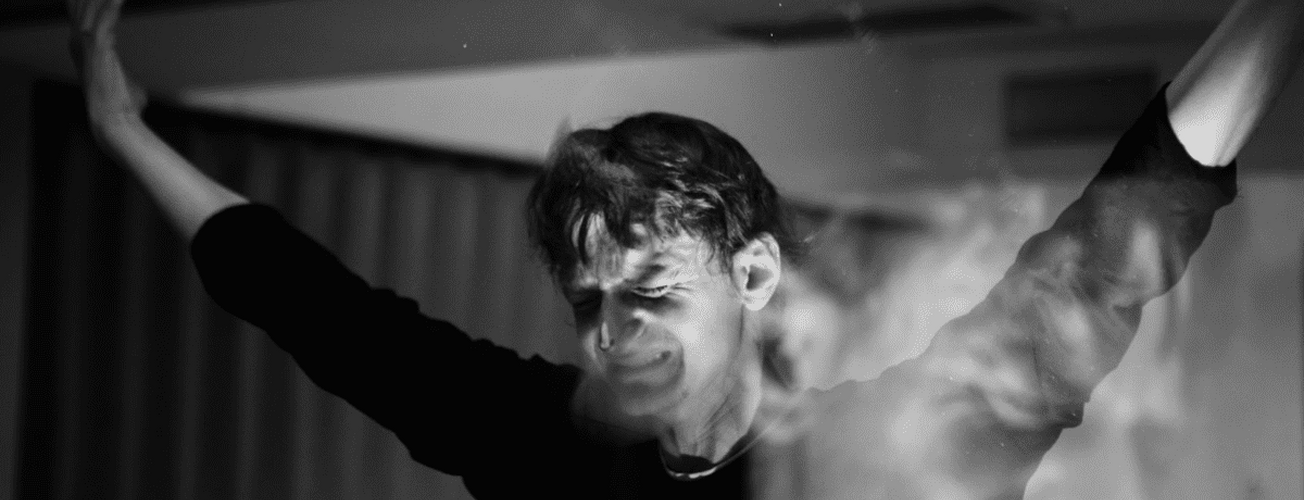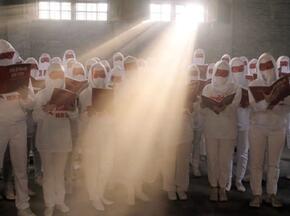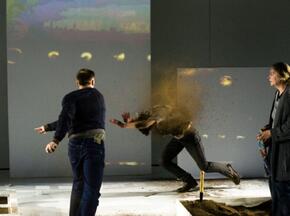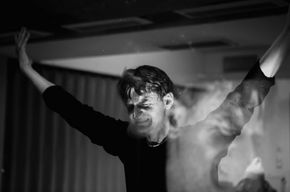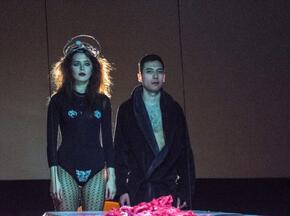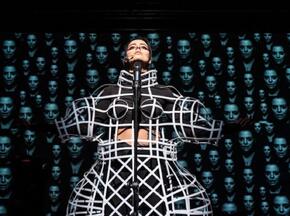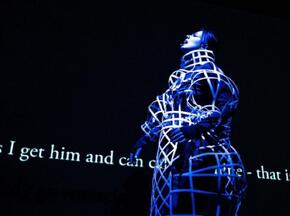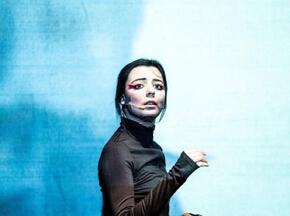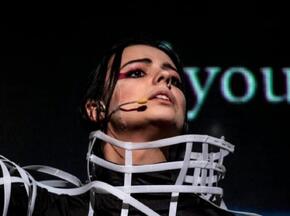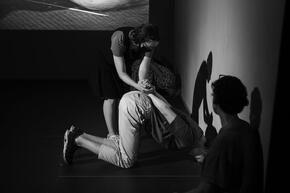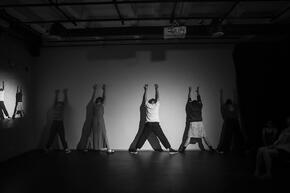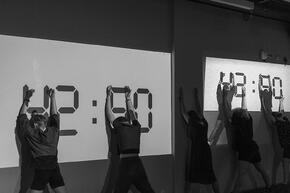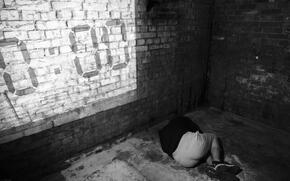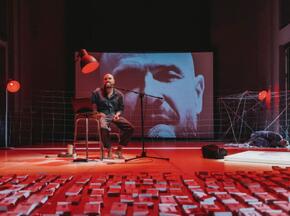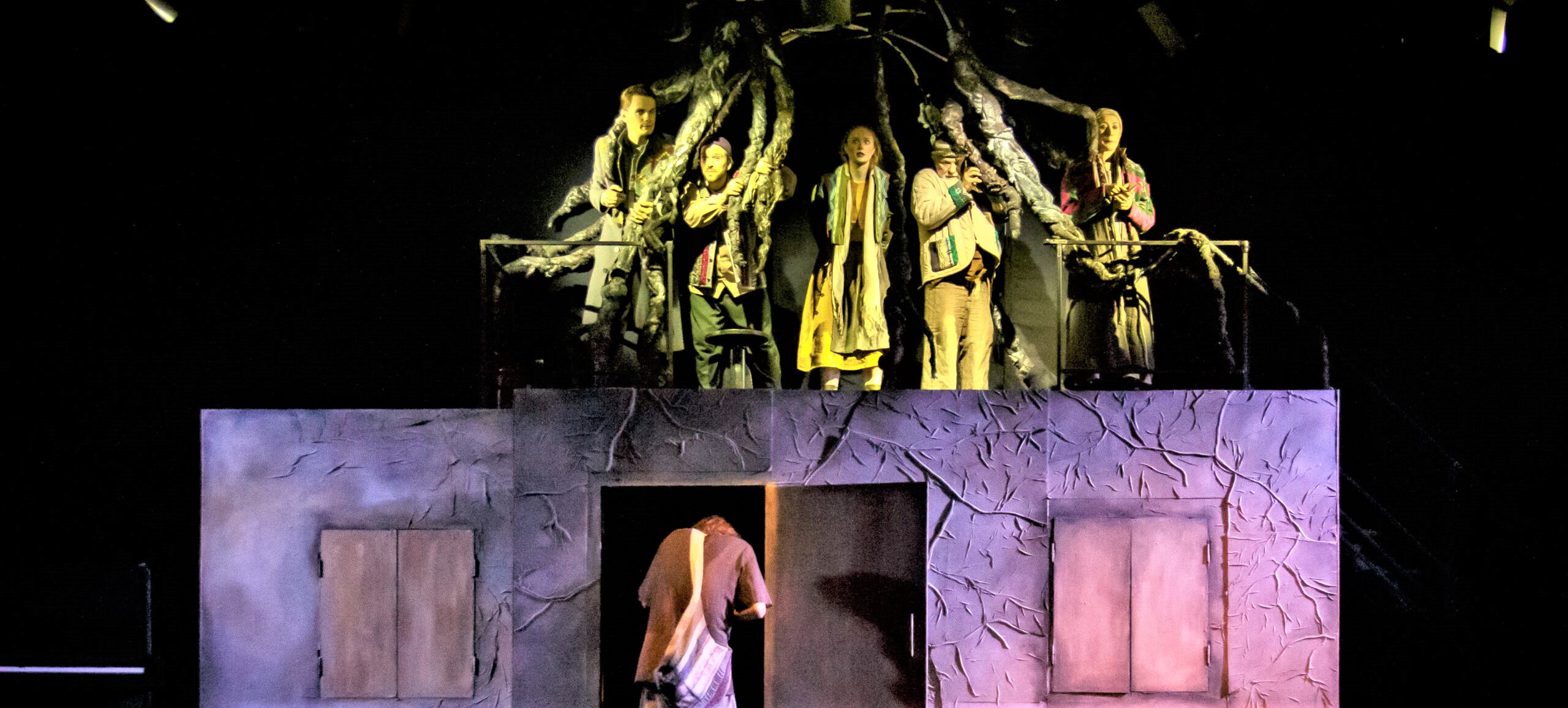Belarusian theater in exile. Festival movement
The previous twenty years of development of the Belarusian theater can be called a real rise. This happened, inter alia, thanks to the development of the non-state sector of culture: independent theater groups, project theaters, alternative venues and influential festivals appeared. This brought with it a healthy competition that spread among both public and independent theater groups. To be honest, interesting theatrical events took place several times a week. It's hard to imagine it today. Our life has changed a lot, as well as the Belarusian theatrical landscape.
After August 2020, it seemed to many people in Belarus that the theater was no longer needed, as well as art in general. It was not clear what to show, how to play, what to talk about with the audience. The Belarusian theater community found itself in a difficult situation. Many of the theater groups showed gestures of solidarity, but the general strike never happened. After the resignation of the actors of the Janka Kupala National Academic Theatre, opinions were divided, and tension arose among the people in the field of performing arts. There were those who believed that all the theater groups should follow the resigned actors of the Janka Kupala Theatre. But the facts show that only a few resignations followed. Many representatives of the theater groups, who supported the protest agenda, did not want to destroy their theaters: the Janka Kupala Theatre case showed that there were no those who could not be replaced by the regime. There were no more illusions..
For a state whose vector of development is not directed towards culture, it will definitely be easier to stop the activities of the unwanted cultural institutions for a long time. Therefore, many representatives of state theaters supported their colleagues and the audience in their protest position - they regularly participated in the protest marches, organized various creative actions, wrote letters, prepared video messages and also sent encrypted but understandable signals that could be heard in their performances or were openly shown to the public at the final bow. Not to mention the fact that, after a performance, many actors considered it important to show the victory gesture as a symbol of the protest in Belarus. This gesture was repeated by the audience, breaking off the applause and plunging the hall into silence. Of course, we are not talking about all the theaters. Many theater groups kept silent and are still keeping silent. One can only guess what this silence hides.
But soon even such acts became impossible. Repressions began, “dissenters” were fired from theaters and continue to be fired, performances are attended by representatives of the administration and special censorship commissions. Performances are removed from the repertoire - either the views of the author of a play are not acceptable, or the director took part in some unwanted activities. Occasionally in state theaters you can find a topical and sharp play, and when against all odds it appears, the theatrical community comes to see it again and again, an infinite number of times, like it’s never enough.
As for the non-state theater, the situation is really bad. Almost all independent theater companies have already been liquidated by the authorities or are in the process of being liquidated. Some companies themselves are forced to freeze their projects, because the authorities do not allow them to be shown in the country. The cultural centers, where performances took place, are closed and are not working. Many theatrical figures were forced to leave and are now implementing their projects outside of Belarus, as there is an unspoken ban inside the country on the professional activities of the dismissed unwanted theatrical figures. This led to the mass emigration of the cultural figures due to the pressure and threats from the authorities.
Examples like this abound, it is impossible to tell about each of them. But theatrical figures continue to look for opportunities for interaction within the community and outside support in order to develop and preserve the Belarusian theater, its significant historical potential, which is now systematically destroyed by the state repression machine. Despite the pressure from the authorities, the desire to do what you love often outweighs fear and overcomes obstacles.
It seems that the modern Belarusian theater has two ways of development and the opportunity to express itself on really exciting topics: underground existence and work abroad. We will talk about the first option another time, but, as for the theater in exile, it is quite difficult to think in this direction if you do not have broad opportunities to track everything that is happening with the theater community of Belarus dispersed throughout Europe. And yet some opportunities arise.
The idea to show the Belarusian program within the framework of this or that European festival has become viable and useful, first of all, for the Belarusians themselves. This seems obvious if we take the three events that took place over the past six months, where the Belarusian agenda was presented in one way or another.
On December 3-5, 2021, the special program Białoruś – odNowa was shown at the prestigious Boska Komedia festival in Krakow. It was organized by the Adam Mickiewicz Institute and the Zbigniew Raszewski Theater Institute. The program included performances, play reading, soundrama, as well as an educational part where theater historians and critics presented their views on the state of the modern Belarusian theater and drama. All the works mentioned below were made within the framework of the art residences organized by the Polish colleagues for the Belarusians.
Among the Belarusian works, two quite traditional works by the Kupalautsy Independent Theater Group were presented – the stage reading of the play “The Police” by Slawomir Mrozek and the play "Notes of a Red Army Officer" based on the story by Syargey Pyasetski directed by Mikalay Pinigin. The actress and director Palina Dabravolskaya also showed her soundmonodrama "SarmaTY/JA" based on the poem by Maryia Martysevich. This is a tragic story of the inability to settle down in a foreign world, which successfully combines the Belarusian folklore, hip-hop, video art and bright visuals.
In addition, the performance «375 0908 2334 The body you are calling is currently not available» by Igar Shugaleeu was shown. It aroused a sinking feeling. The idea of the performance was born as a protest against the violence, many years of stress, fear and sense of guilt, in which the Belarusians live today. The performer offered to imagine and physically experience the moment of detention, which many Belarusians had gone through.
For an hour, the performer kneels facing the floor in a certain position in which people detained at the protests were forced to stay for hours. At the beginning, Igar Shugaleeu addresses the audience with a proposal to join him. At different shows, the audience behaves differently, sometimes dozens of people join, sometimes only one, someone can not stand the hour, someone stands until the end. Some begin to talk to the performer or pray while standing next to him. Others do not join physically, but cry silently, watch the action, recollect the suffering and lawlessness through which tens of thousands of residents of our country have gone and continue to go through.
The Boska Komedia festival also included a series of stage readings of plays by the Belarusian playwrights Kanstantsin Steshyk, Ganna Relitava, Mikita Ilyinchyk and other authors who wished to remain anonymous. The readings themselves were conducted by the representatives of Polish theater groups. There were other events as well, such as the opening of an exhibition of thematic painted carpets by Maksim Osipau or the staging of the Andrei Kureichyk’s play "Voices of the New Belarus" by the Polish director Lukasz Kos.
On June 19-26, an important event for the Belarusian theater took place in Lublin. For the first time, the Bliski Wschód festival was organized, dedicated to the joint activities of artists from Belarus, Ukraine and Poland. Initially, it was assumed that it would be exclusively Belarusian, but in connection with the outbreak of the war in Ukraine, the format was, of course, adjusted. Among other things, it was important for the organizers to support in this way the Polish and Belarusian volunteers, who helped and continue helping the refugees from Ukraine.
The program partially repeated the one in Krakow, which was not bad, but still showed the limited possibilities in organizing such events. There were difficulties with the arrival of the groups whose representatives were still in Belarus, with the measures to ensure safety of certain actors, playwrights, performers, lecturers, who often wish to stay anonymous.
I had another chance to see the two works by Kupalautsy: "Gusi-Lyudzi-Lebedzi" based on "Sabaki Europy" (“The Dogs of Europe”) by Algerd Bakharevich directed by Alyaksandr Gartsueu; a video version of the play "Dziady" by Adam Mickiewicz directed by Pavel Pasini was also shown. Palina Dabravolskaya once again showed "SarmaTY/JA", and Igar Shugaleeu gave his performance. Moreover, they brought a once sensational play that still touches and attracts: "The Song of Songs" by Yurka Dzivakou. Now the director lives and works in Poland and has not seen his work for several years already.
The works in which the authors directly reflect on the Belarusian protests and their consequences caused great pain. The question of how to speak on this topic from the stage and whether it should be done now is being actively discussed and there is much concern about it. Everyone decides this for themselves in their own way. For example, an anonymous group - the creator of the play "Paugoda" (“Half a Year”) based on the play by Kasia Chekatouskaya - refers to the memories of an eyewitness to the events of 2020. She experienced both the happiness from the sense of unity at the marches, and detention, and imprisonment. The production itself was performed with the help of modest expressive means: the actors pronounce the text under a restrained video sequence, looking into the eyes of the audience. But this is enough to make the faces of the audience covered with tears and to plunge into the understanding of the fact that the national trauma has not at all been worked through.
The authors and performers chose the opposite approach during the staged reading of the play “U Nas Na Kuhni” (“In our Kitchen”), where the story of a sudden appearance of the Belarusian dictator in the kitchen of a young married couple who is now going to live with them unfolds in an absurd manner. The ridiculous situations and the humor with which the story is told caused the audience to burst into laughter that bordered on hysteria. Which shows again that the Belarusians cannot and will not be able to calmly react to this topic we don’t know for how long. Laughter through tears, tears through laughter.
Bliski Wschód also offered video screenings of performances. For example, a production of Vital Karaleu's play "Opium" staged by Alyaksandr Marchanka was shown on a large screen. It is interesting how the story of a Belarusian from Ragachou, who is forced to leave to work in Ukraine, where there is a war going on, is extremely relevant today. And the performance, by the way, was staged back in 2016.
An educational program was also organized with the participation of Belarusian theater experts and critics; this time the number of lectures increased from three to five. The topics covered by the experts were very diverse: from the modern Belarusian drama to the feminist agenda in the national theater, from the visual theater to the theater of objects. Moreover, discussions were held on the subject of the modern performance assessment criteria.
Of course, there were also meetings with authors and creative teams, and spontaneous discussions of performances, as well as non-theatrical events, such as the heart-piercing concert by Andrey Khadanovich and the lecture by Algerd Bakharevich and Yulia Tsimafeeva. The program turned out to be really eventful and vibrant. However, those productions from the program in which there was no Belarusian trace, in most cases, were significantly inferior to the rest in artistic terms, and it seemed that they had been included in the program accidentally.
Another small but important event took place in Vilnius: on July 4-6, 2022, the festival-conference “Belarusian Modern Theater: the Logic of Change” was held at the European Humanities University. During these three wonderful days, the participants and spectators managed to listen to a series of reports by six Belarusian theorists, to watch a video screening of the previously mentioned “Opium”, to discuss the specific features of the emergence and the possibilities of the existence of our project theater at the present time. The sketch of the play "Manalogi Zhniunya" (“Monologs of August”) by an anonymous author seemed very poignant. After the performance, in the corridors and corners of the European Humanities University, sobs were heard coming from the Belarusian hearts, the hearts of those who left, and those who stayed. We hope that this sketch will develop into a full-fledged performance, and then it will be possible to tell about it in detail.
The arrangement and existence of such events are, of course, very important for the further development of the Belarusian theater in the today's incredibly difficult conditions. Foreign colleagues on the wave of solidarity give the Belarusians an opportunity to express themselves, organize residences, special programs at festivals and conferences. But the emergence of such events has made obvious an important problem, the fight against which is still ahead. This is a small interest in our theater on the part of foreigners, which was clearly indicated by the number and composition of the audience at the performances and lectures. It sometimes created the feeling of a get-together of close friends. It should be noted that the artistic quality of the vast majority of the performances was very high. The reason for this may be the limited advertising, caused, among other things, by the participant safety concerns. Or the war in Ukraine, which has overshadowed the Belarusian problems. It is clear that there is no apparent reason. However, it is undeniable happiness to get together with your compatriots in a free territory and talk sincerely and honestly, without looking back at every word.
LINKS
Boska Komedia Białoruś – odNowa
«375 0908 2334 The body you are calling is currently not available»
Soundrama "SarmaTY/JA", trailer
Photos from Bliski Wschód festival website http://ck.lublin.pl







